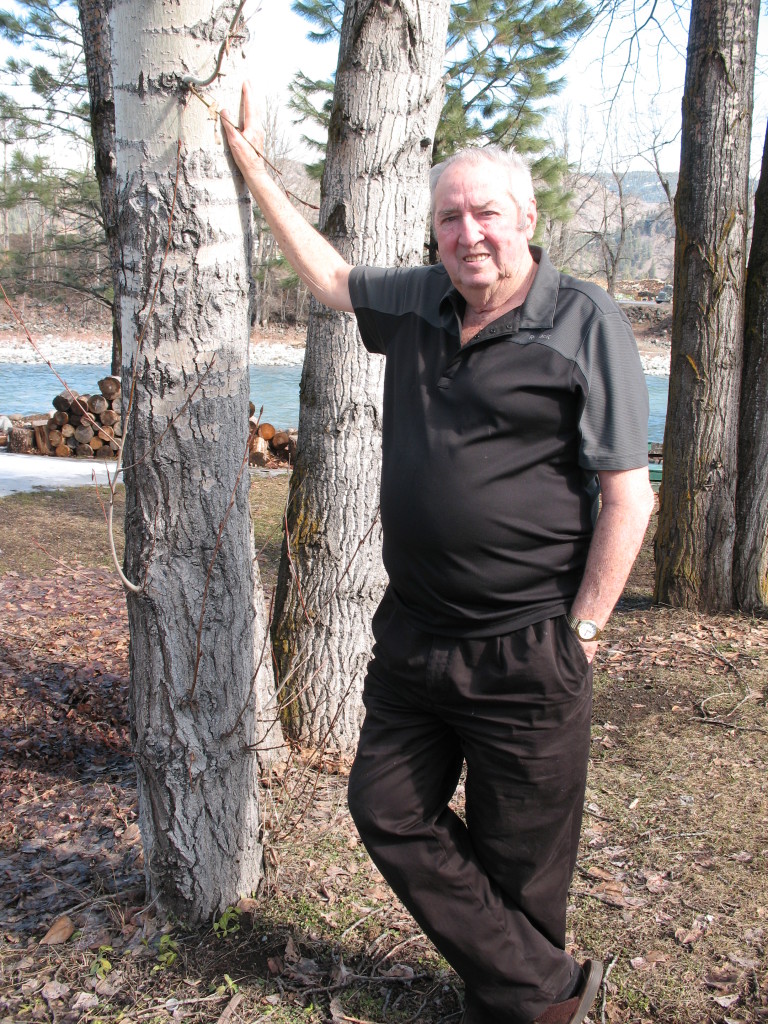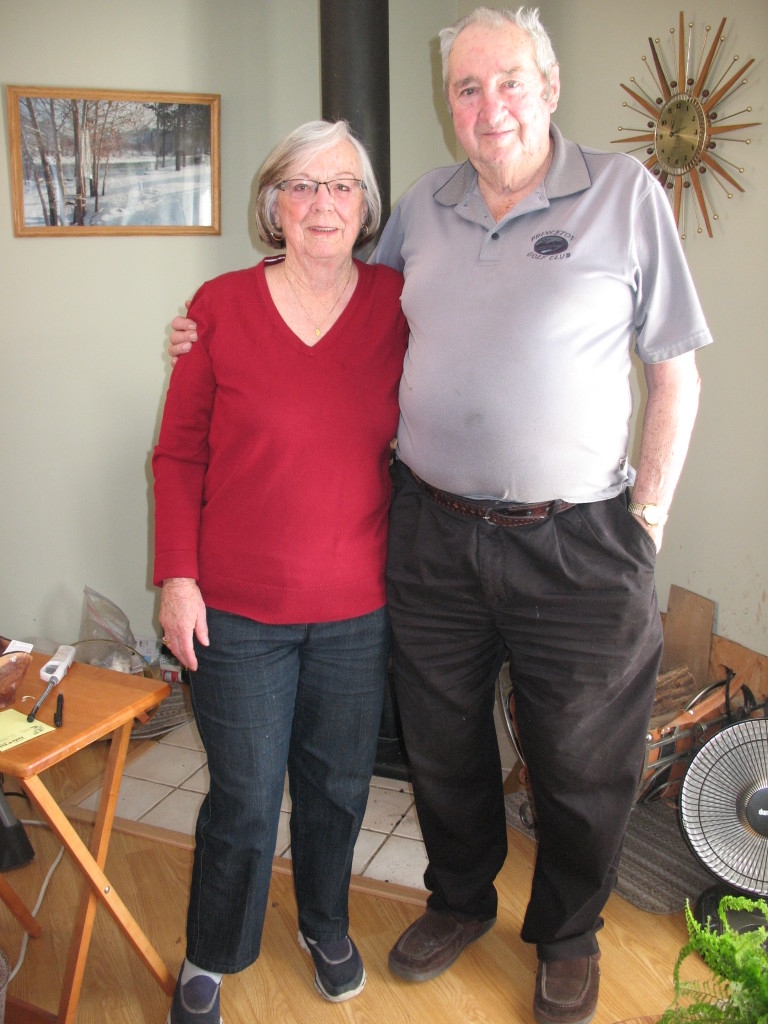
Bob Mullin was waiting on the porch when Linda and I arrived at his home on the outskirts of Princeton. He reached out a big hand and said, “Hi, I’m Dinny.”
In the dining room, which overlooks the Similkameen River, his wife Beryl set steaming cups of coffee before us. A wood stove in the corner provided a cozy warmth. I began by asking Dinny for the story behind what I felt was an intriguing nickname. He laughed. “My parents didn’t know I was born with impaired hearing,” he replied. “Often when my Dad asked me a question, I didn’t hear him, so I didn’t answer. He thought I wasn’t paying attention so he began calling me Dinny Dimwit, after a cartoon character.”
For many the inability to understand well is a debilitating impediment in social and employment situations. It might have sidelined him in the game of life. Had Dinny been less resolute and resilient, he could easily have joined the company of the malcontented when he left school without graduating. Instead, he carried on as though the impairment wasn’t a concern. “My first job was at Burr’s Motors,” he said. “The Ku Klux Klan was active here at that time and the owner was a member.” For a moment he seemed to return in his mind to those early days, then added, “They burned a cross in town.”
I was to discover that Dinny delights in sharing from his storehouse of tantalizing facts and events from the past. He pointed across the river and said, “that’s where Bill Miner’s cabin was. He’d ride from there in the morning and rob a train. By evening he was back. My mom said he was a hell of a dancer.”
Dinny and Beryl met at a school dance in Coalmont, the beginning of a life long love affair. “It was minus 32 Fahrenheit the day we were married 60 years ago,” Beryl recalled. Dinny reflected for a moment, seemingly surprised at the number of years. He smiled and said “I didn’t think I’d last this long.”

Endowed with the wide shouldered frame of a prairie wheat farmer, his early ambition was to join the provincial police. Alert, strong and thoughtful, he’d certainly have been an asset to the force, but it didn’t happen. “I was told I wouldn’t get in because of the hearing impairment,” he said. He refused to be discouraged though and got a job at the Granby Power Plant. When it closed, he worked for the local sawmill.
He understood that a community will be strong only if people accept responsibility and participate. “I got my Industrial First Aid ticket and joined the volunteer Fire Department,” he told us. “They gave us $3.00 a month. Most of us turned that back in to buy equipment. Sometimes I drove the ambulance. We did whatever was needed.”
Unlike today, those were not times when people could easily buy virtually everything they deemed a necessity. Dinny and his friends joined a local hockey team and played against other towns. “For padding we used Sears and Eatons catalogues,” he said. “We cut strips of tire tubing to hold them in place. No one owned a helmet.” His usual position was centre. Although goalie wasn’t a position he cared for, he became net minder if necessary. Now 84, he’s an ardent Canuck fan. “Right now he’s a little mad at them,” Beryl confided. “They aren’t winning a lot.”
They weren’t afraid of challenges. “We bought a 200 acre ranch 3 miles along the Merritt road,” Dinny said. “We ran 50 head of cattle. Often while I was at work, Beryl rode the range. It got to be too much though, working and ranching. A guy told me once the only thing stupider than a cow is the person who owns it. We sold the ranch.”
By the time our conversation drew to a close, I concluded Dinny and Beryl have achieved an enviable camaraderie and zest for life. She makes borscht and regularly plays bridge. He plays crib and each Tuesday meets for coffee with former hockey pals at the Sandman Inn. From their comfortable dining room they can observe an eagle building its nest or children tubing on the river. He now has hearing aids and his father would certainly agree ” Dinny Dimwit” has become surprisingly intelligent.

Great article and great people.